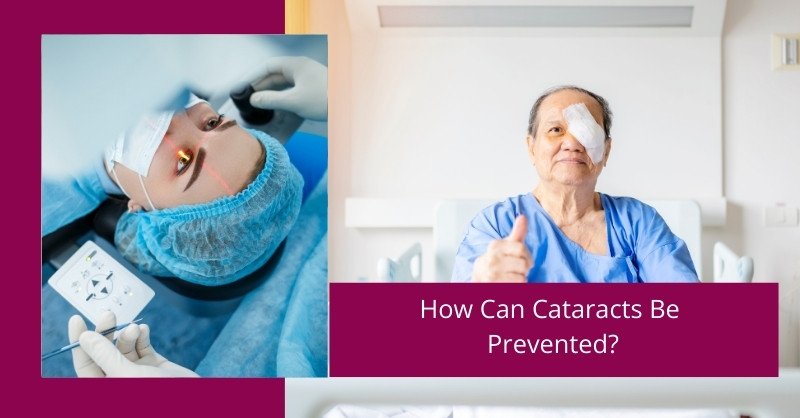What Are Cataract Causes? Learn About Prevention and Treatment
What Are Cataracts?
Understanding what are cataractcauses is important for maintaining eye health. Cataracts occur when the eye’s lens becomes cloudy, impairing vision. This condition often develops gradually, typically due to the aging process. If left untreated, cataracts can interfere with daily activities and may eventually lead to blindness. Early detection and intervention, however, can significantly improve outcomes.
What Are Cataract Causes?
Several factors contribute to cataract development, many of which can be managed to reduce the risk. Let’s break down the main causes:
- Aging: Age-related cataracts are the most common. As we age, proteins in the lens begin to break down and clump together, creating cloudiness. This eventually leads to vision impairment.
- UV Radiation: Prolonged exposure to ultraviolet (UV) rays from sunlight can damage the lens and increase the risk of cataracts. Therefore, wearing sunglasses with UV protection helps reduce this risk.
- Medical Conditions: Certain diseases, such as diabetes, can increase the likelihood of cataracts by affecting the eye’s lens. Consequently, managing these conditions properly minimizes the risks.
- Genetics: A family history of cataracts can raise your susceptibility. Therefore, understanding your genetic background is crucial for early monitoring.
- Eye Injuries and Surgeries: Previous eye trauma or surgeries can contribute to cataract formation. Thus, taking preventive measures after injury is essential to reduce risk.
- Lifestyle Factors: Smoking, excessive alcohol consumption, and a poor diet are well-known contributors. These habits accelerate oxidative stress, which damages the lens over time.
How Can Cataracts Be Prevented?

Prevention requires a combination of lifestyle adjustments and regular eye care. Some preventive measures include:
- Protect Your Eyes: For instance, wear UV-blocking sunglasses and hats when outdoors. Moreover, avoid prolonged exposure to bright lights.
- Adopt a Healthy Diet: Eating foods rich in antioxidants, such as leafy greens, berries, and nuts, helps promote eye health. Additionally, include omega-3 fatty acids and vitamins C and E in your daily meals.
- Manage Medical Conditions: It is important to manage conditions like diabetes through regular monitoring and medication.
- Quit Smoking and Limit Alcohol: These actions significantly reduce the risk of cataracts. Furthermore, they improve overall health and eye health.
Symptoms of Cataracts
Recognizing symptoms early is crucial for managing cataracts effectively. Common signs include:
- Blurry or dim vision
- Sensitivity to light and glare
- Difficulty seeing at night
- Fading colors
- Frequent changes in prescription glasses
Advanced Treatments for Cataracts
If cataracts severely impair vision, surgery remains the most effective solution. Modern treatment options include:
- Phacoemulsification: This minimally invasive procedure uses ultrasound waves to break down the cloudy lens, which is then replaced with an artificial intraocular lens (IOL). As a result, vision improves rapidly.
- Laser-Assisted Cataract Surgery: This advanced technique ensures greater precision and promotes faster recovery. In turn, this leads to fewer complications.
- Customized Intraocular Lenses (IOLs): Patients can choose multifocal lenses that correct vision and eliminate the need for glasses. Selecting the right lens is vital for long-term success.
Managing Cataracts with Lifestyle Adjustments

Even after diagnosis, you can manage cataracts effectively by making a few simple lifestyle changes:
- Use brighter lighting at home.
- Regularly update your prescription glasses to optimize vision.
- Avoid driving at night if glare worsens your vision.
- Lastly, consult with an ophthalmologist to receive personalized guidance that addresses your needs.
FAQs on Cataract Causes and Prevention
Q: Can children develop cataracts?
A: Yes, congenital cataracts can occur due to genetic factors or infections during pregnancy. Early diagnosis is essential to ensure proper treatment.
Q: Does using digital devices increase cataract risk?
A: Although prolonged screen time may cause eye strain, it isn’t directly linked to cataract formation. However, following the 20-20-20 rule reduces eye strain and enhances comfort.
Key Takeaways for Healthy Vision
- Understand the causes of cataracts and act early to prevent them.
- Routine eye exams help detect cataracts in their early stages, allowing for more effective treatment.
- Modern surgical treatments offer excellent outcomes for cataract patients. As a result, patients experience significant improvement.
- Start protecting your vision today by prioritizing eye health, maintaining a balanced lifestyle, and consulting specialists as needed.



